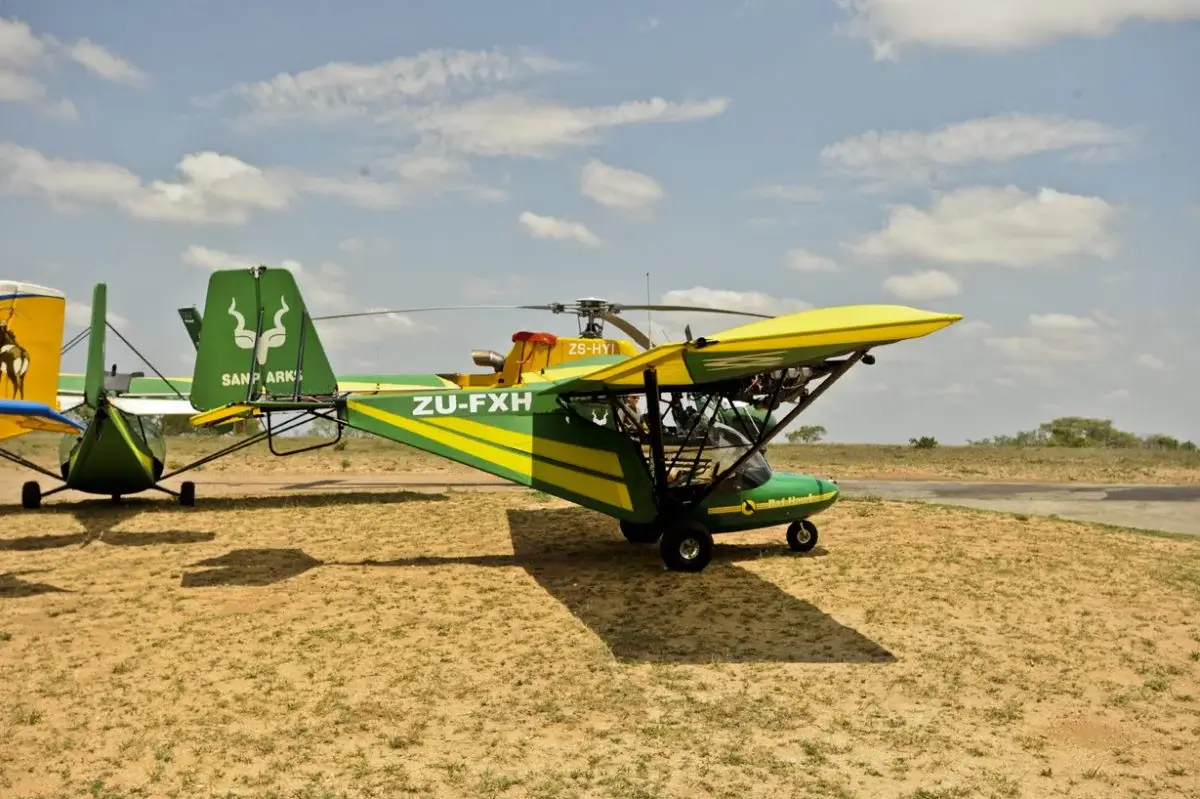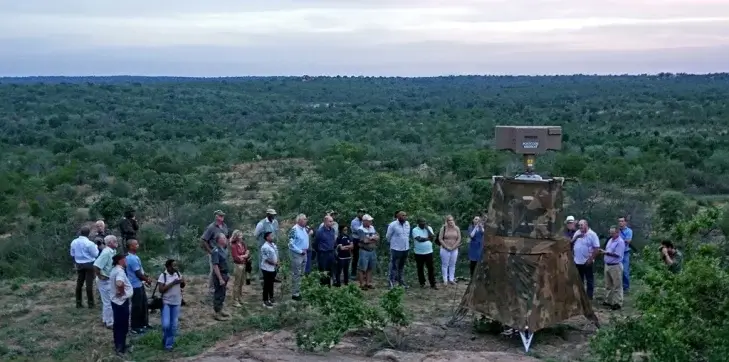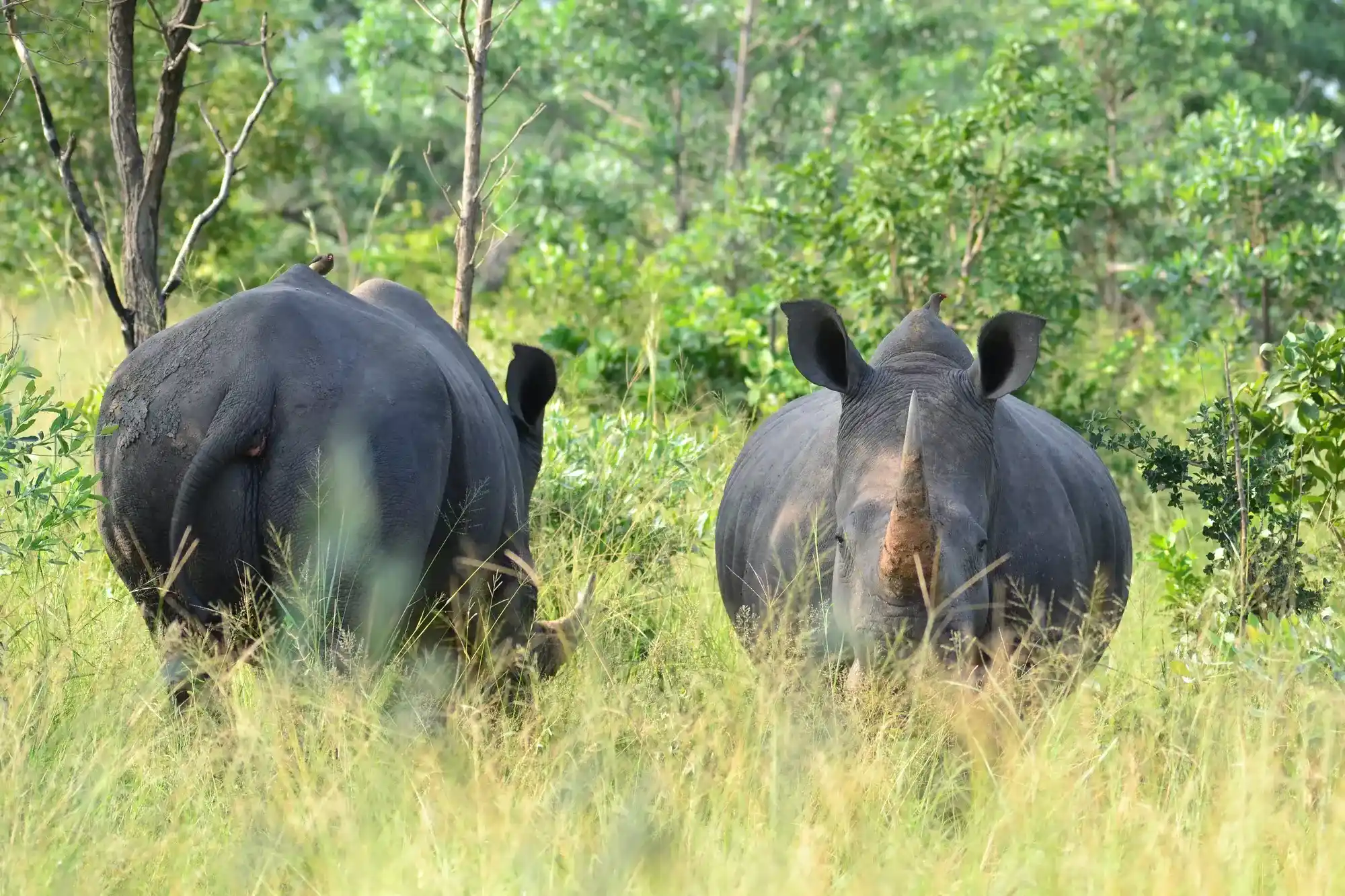South African National Parks (SANParks) recently introduced new measures to help combat poaching in the country’s biggest national parks.

Building on last year’s donation of four Bat Hawk surveillance aircraft to aid surveillance, conservation, and anti-poaching efforts in the Kruger National Park, Anglo American Platinum donated another Bat Hawk this month that will be going to SANParks’ Addo Elephant National Park in the Eastern Cape.
Another aircraft will be donated to Mapungubwe National Park, on the border of South Africa, Botswana and Zimbabwe
The Bat Hawks have been donated to Kruger National Park have been put to great use, assisting the SANParks teams with rhino dehorning work, ongoing research, aerial visible policing, and water point and soil erosion monitoring.
Addo Elephant National Park, which spans over 293 000ha, is home to one of the densest populations of African elephants in the world and is the only park in the world that can lay claim to the Big Seven (elephant, rhino, buffalo, lion, leopard, Southern Right whale and the Great White shark in the Addo Marine Protected Area).
The Bat Hawk aircraft, assembled in Nelspruit, present an affordable and safer alternative to helicopters, and will go a long way in assisting with the Park’s conservation objectives. Other benefits of the aircraft include the cockpit’s great visibility, even during adverse weather conditions, and their light undercarriage, which can easily manoeuvre through bush terrain.
Rhino poaching has already decreased in South Africa in the first six months of 2023, thanks to joint initiatives by various role players within the wildlife industry.
Additional Measures
The Kruger National Park had recently added a satellite hound centre in Skukuza to help close the distance on poachers when spoor (tracks) is noticed, so that the dogs do not have to be flown in from Hoedspruit every time. Also, there were now plate recognition cameras in strategic areas, which have already resulted in the recovery of two SUVs and the arrest of two individuals who intended to smuggle rhino horn into Mozambique through the KNP.
Incorporating Modern Technology
Solar powered hubs, cameras and alarm speakers are just some of the few modern technologies erected in the Kruger national park’s (KNP) Skukuza campsites to bolster the fight against theft, poaching and other crimes.
The bulk of the rhino poaching occurred more in the southern KNP which has been facing severe pressure with attacks. The cameras, vehicle recognition devices and other tools have recently been strategically set up near intensive protection zones (IPZ) which cover nine types of landscapes in the southern KNP site. The site also suffers the greatest human incursion and poaching rates due to the rhino densities and intense human settlement.
The KNP has since installed three cameras, with 12 in total planned for installation to fight poaching and vehicle smuggling, as well as dogs to drive up the arrest of poachers. Sandra Sterling, at the mission area joint operations centre, said these measures yielded success and KNP security was now better equipped to protect the park.

Also, for almost 7 years, Postcode Meerkat, the most advanced wide-area surveillance system ever developed for counter-poaching purposes on the African continent, has kept an eagle eye over vast sections of wilderness in South Africa’s world-famous Kruger National Park, becoming a key piece in a much larger puzzle that protects one of the last remaining strongholds of wild rhino in the world. Utilising a pioneering combination of radars and electro-optical technology, the astounding capabilities of Postcode Meerkat have been a major force multiplier for counter-poaching teams, in some instances virtually eliminating rhino poaching incidents altogether in the high-risk areas where the portable system is deployed.
Kruger is the largest national park in South Africa, stretching for 380 km from south to north and covering almost 20 000 km2— an area almost as big as the country of Israel. This poses significant challenges for the park’s counter-poaching units, particularly when it comes to responding quickly to incidents. But the technology used by Postcode Meerkat can detect the movement of both humans and rhinos over large distances, pinpointing their locations and operating during day and night. This allows for dramatically faster reaction times, with counter-poaching teams able to react to poachers before they can target any rhinos.
Rhino poaching continues to decrease as joint initiatives pay dividends
In the first six months of 2023, 231 rhinos were killed in South Africa. These figures represent an eleven per cent decrease (or a decline of 28 animals killed for their horn) compared to the same period last year. Between 1 January and 30 June 2023, poaching trends also continued to show a move away from the Kruger National Park to provincial and private reserves.
Because the demand for rhino horn remains a constant threat to rhino populations, collaboration between law enforcement agencies, including the SAPS, DPCI and the Green Scorpions, Customs officials, the Financial Intelligence Centre (FIC) and the National Prosecuting Authority, remain key. In the first six months of this year, their hard work with both the SAPS and the NPA has led to the conviction of 31 offenders.
A Crackdown on Offenders
South Africa is home to around 80% of the world's rhinos. Nearly half of Africa's critically endangered black rhinos live in the country and the world's largest population of near-threatened white rhinos. South African authorities have increased anti-poaching measures in recent years, including requiring new South African National Parks employees having to take a lie detector test amid concerns that some workers might be working with poachers. Environment minister attributed the overall downward trend in poaching to the "incredible work" of rangers and law enforcement agencies.

They are Vital!
Rhinos are vital to the ecosystem as they play a crucial role in maintaining biodiversity. They are herbivores that help control vegetation growth, which in turn supports a healthy balance of plant and animal species. Additionally, rhinos are also important for seed dispersal, as they consume fruits and spread the seeds through their droppings, contributing to the regeneration of forests and other habitats.
They are one of the largest mammals in Africa and are also an important member of the world-famous Big 5. Let's do our part in protecting these magnificent creatures by supporting conservation efforts and promoting responsible tourism. By raising awareness about the threats they face, such as habitat loss and poaching, we can help ensure their survival for future generations to admire and appreciate.
